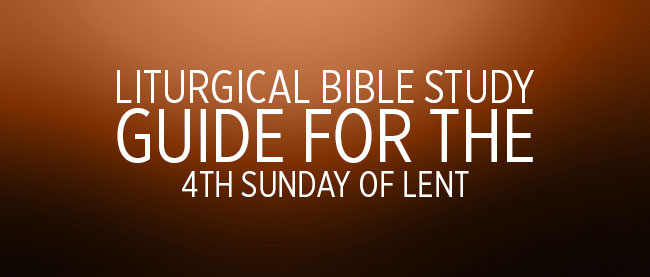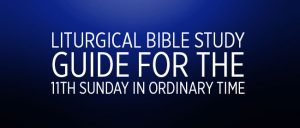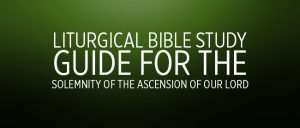1st Reading – 2 Chronicles 36:14-16, 19-23
The book of 2nd Chronicles covers the same time period as 1st and 2nd Kings. As is the case with Samuel and Kings, the two books of Chronicles were originally one book but appear as two in the Greek version of the Bible (the Septuagint) and this division is maintained in the Vulgate and in later editions, including the Hebrew Bible. The inspired writer was probably a Levite from Jerusalem, given his respectful attention to the Temple and its institutions; he probably edited the text – if one accepts Ezra and Nehemiah as the original authors as some have suggested – after the death of those prophets and before the 3rd century B.C. since Sirach takes it as read in the year 180 B.C.
Second Chronicles focuses on the history of Solomon and after the division of the kingdom it concentrates on the kingdom of Judah and its kings (who are all of the line of David). Finally, the book finishes with an account of the fall of Jerusalem, exile to Babylon and the edict of Cyrus, king of Persia, allowing the Jews to return to Israel. This is our
reading for today.
2nd Reading – Ephesians 2:4-10
Since the 2nd century this letter has been attributed to Saint Paul, although it was not unknown at that time to attribute authorship to a famous person. Ephesus was a large seaport city on the western coast of Asia Minor and the capital city of the Roman province of Asia. Saint Paul stayed at Ephesus during his second missionary journey (Acts 18:19-21) and made it his base during his third missionary journey (Acts 19:1-20:1), spending about three years there.
The first three chapters of this letter (from which our reading for today is taken) announce God’s great plan, hidden from the beginning of the world, to create a Messianic people of God, a new community of people uniting in Christ both Jew and Gentile and erasing the impenetrable social and religious barriers that had previously divided mankind. It is Saint Paul’s privilege to be chosen herald of God, appointed to reveal to men this mystery of God’s love.
Gospel – John 3:14-21
This part of the gospel is a familiar one: Jesus is talking with Nicodemus. Nicodemus (the name means “conqueror for the people”) was a Pharisee and is called a “ruler of the Jews” in John 3:1; which probably means that he was a member of the Sanhedrin. He visited Jesus at night and admitted His divine mission. Our reading today is part of Jesus’ discourse on baptism. Jesus has told Nicodemus that no one can see the kingdom of God unless he is born “again” (the word is anothen, which also means “from above”), a statement which confuses Nicodemus. This allows Jesus to explain the significance of His mission). To better understand the context, we will begin our reading at verse 10.





